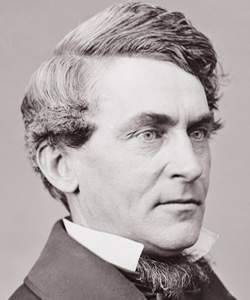Frederick Theodore Frelinghuysen (Congressional Biographical Directory)
Reference
FRELINGHUYSEN, Frederick Theodore, (nephew and adopted son of Theodore Frelinghuysen, great-nephew of Frederick Frelinghuysen, uncle of Joseph Sherman Frelinghuysen, great-grandfather of Peter Hood Ballantine Frelinghuysen, Jr.; great-great-grandfather of Rodney P. Frelinghuysen), a Senator from New Jersey; born in Millstone, N.J., August 4, 1817; graduated from Rutgers College, New Brunswick, N.J., in 1836; studied law; admitted to the bar in 1839 and commenced practice in Newark, N.J.; city attorney of Newark in 1849; member of the city council 1850; trustee of Rutgers College 1851-1885; member of the peace convention of 1861 held in Washington, D.C., in an effort to devise means to prevent the impending war; attorney general of New Jersey 1861-1866; appointed and subsequently elected as a Republican to the United States Senate to fill the vacancy caused by the death of William Wright and served from November 12, 1866, to March 3, 1869; unsuccessful candidate for reelection in 1868; appointed United States Minister to England by President Ulysses Grant in July 1870; confirmed but declined the appointment; again elected to the United States Senate as a Republican and served from March 4, 1871, to March 3, 1877; appointed a member of the Electoral Commission in 1877 to decide the contests in various States in the presidential election of 1876; unsuccessful candidate for reelection; chairman, Committee on Agriculture (Forty-second through Forty-fourth Congresses); resumed the practice of law in Newark, N.J.; appointed Secretary of State by President Chester Arthur 1881-1885; died in Newark, N.J., May 20, 1885; interment in Mount Pleasant Cemetery.
“Frelinghuysen, Frederick Theodore,” Biographical Directory of the United States Congress, 1774 to Present, http://bioguide.congress.gov/scripts/biodisplay.pl?index=F000369.
Frederick Theodore Frelinghuysen (American National Biography)
Scholarship
Along with many of his contemporaries, [Frelinghuysen] quit the Whig party, as it disintegrated in the early 1850s, and eventually moved into the new Republican party. Frelinghuysen did not participate as a "founding father" of the new party, however, because he agonized for several years over his decision to abandon the Whigs. His family felt a unique attachment to the party, which had offered the nation the ticket of Henry Clay for president and Theodore Frelinghuysen for vice president in the election of 1844. By 1860, however, Frederick Frelinghuysen enthusiastically supported the Republicans and endorsed Abraham Lincoln in his bid for the presidential nomination.
Allan Burton Spetter, "Frelinghuysen, Frederick Theodore," American National Biography Online, February 2000, http://www.anb.org/articles/04/04-00398.html.



